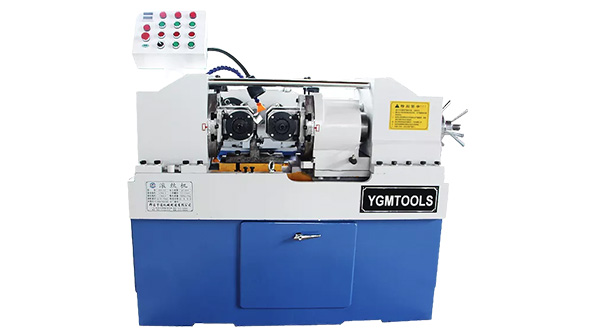
-
 Afrikaans
Afrikaans -
 Albanian
Albanian -
 Amharic
Amharic -
 Arabic
Arabic -
 Armenian
Armenian -
 Azerbaijani
Azerbaijani -
 Basque
Basque -
 Belarusian
Belarusian -
 Bengali
Bengali -
 Bosnian
Bosnian -
 Bulgarian
Bulgarian -
 Catalan
Catalan -
 Cebuano
Cebuano -
 Corsican
Corsican -
 Croatian
Croatian -
 Czech
Czech -
 Danish
Danish -
 Dutch
Dutch -
 English
English -
 Esperanto
Esperanto -
 Estonian
Estonian -
 Finnish
Finnish -
 French
French -
 Frisian
Frisian -
 Galician
Galician -
 Georgian
Georgian -
 German
German -
 Greek
Greek -
 Gujarati
Gujarati -
 Haitian Creole
Haitian Creole -
 hausa
hausa -
 hawaiian
hawaiian -
 Hebrew
Hebrew -
 Hindi
Hindi -
 Miao
Miao -
 Hungarian
Hungarian -
 Icelandic
Icelandic -
 igbo
igbo -
 Indonesian
Indonesian -
 irish
irish -
 Italian
Italian -
 Japanese
Japanese -
 Javanese
Javanese -
 Kannada
Kannada -
 kazakh
kazakh -
 Khmer
Khmer -
 Rwandese
Rwandese -
 Korean
Korean -
 Kurdish
Kurdish -
 Kyrgyz
Kyrgyz -
 Lao
Lao -
 Latin
Latin -
 Latvian
Latvian -
 Lithuanian
Lithuanian -
 Luxembourgish
Luxembourgish -
 Macedonian
Macedonian -
 Malgashi
Malgashi -
 Malay
Malay -
 Malayalam
Malayalam -
 Maltese
Maltese -
 Maori
Maori -
 Marathi
Marathi -
 Mongolian
Mongolian -
 Myanmar
Myanmar -
 Nepali
Nepali -
 Norwegian
Norwegian -
 Norwegian
Norwegian -
 Occitan
Occitan -
 Pashto
Pashto -
 Persian
Persian -
 Polish
Polish -
 Portuguese
Portuguese -
 Punjabi
Punjabi -
 Romanian
Romanian -
 Russian
Russian -
 Samoan
Samoan -
 Scottish Gaelic
Scottish Gaelic -
 Serbian
Serbian -
 Sesotho
Sesotho -
 Shona
Shona -
 Sindhi
Sindhi -
 Sinhala
Sinhala -
 Slovak
Slovak -
 Slovenian
Slovenian -
 Somali
Somali -
 Spanish
Spanish -
 Sundanese
Sundanese -
 Swahili
Swahili -
 Swedish
Swedish -
 Tagalog
Tagalog -
 Tajik
Tajik -
 Tamil
Tamil -
 Tatar
Tatar -
 Telugu
Telugu -
 Thai
Thai -
 Turkish
Turkish -
 Turkmen
Turkmen -
 Ukrainian
Ukrainian -
 Urdu
Urdu -
 Uighur
Uighur -
 Uzbek
Uzbek -
 Vietnamese
Vietnamese -
 Welsh
Welsh -
 Bantu
Bantu -
 Yiddish
Yiddish -
 Yoruba
Yoruba -
 Zulu
Zulu
Rebar Thread Rolling Machine Price List and Cost Comparison Guide
Understanding the Pricing of Rebar Thread Rolling Machines
In the construction and manufacturing industries, rebar plays a crucial role in strengthening concrete structures. The demand for high-quality rebar has led to the development of specialized machinery to enhance efficiency and precision in rebar processing. One such machine is the rebar thread rolling machine, designed for creating threads on rebar to facilitate the joining of steel bars through couplers. With the growing importance of these machines, understanding their pricing structure is essential for businesses in the industry.
What is a Rebar Thread Rolling Machine?
A rebar thread rolling machine is an industrial device that applies pressure to a piece of rebar to generate threads on its surface. These threads are vital for ensuring a strong mechanical bond when joining rebar segments. The machine operates on the principle of cold forming, which means that it deforms the rebar metal without the application of heat, preserving its structural integrity. The thread rolling process is quicker and more efficient than traditional methods, leading to higher productivity and lower labor costs.
Factors Influencing the Price of Rebar Thread Rolling Machines
1. Machine Specifications The price of a rebar thread rolling machine largely depends on its specifications, including capacity, size, and the type of threading it can perform. Machines designed for heavy-duty applications or that can handle larger diameters will typically be more expensive.
2. Brand and Manufacturer Different manufacturers offer varying levels of quality, technology, and customer support. Well-known brands with a reputation for durability and performance may charge a premium price compared to lesser-known manufacturers.
3. Technology Features Advanced features such as digital controls, automatic threading, and integration with other machinery can drive up the cost of the machine. Machines equipped with the latest technology may offer better precision and efficiency, which can justify a higher initial investment.
rebar thread rolling machine pricelist

4. Customization Options Some manufacturers offer customized machines tailored to specific project requirements. Customization can significantly affect the price, as it often involves additional engineering and design work.
5. Market Trends The pricing of rebar thread rolling machines can be influenced by market demand and supply dynamics. In times of high demand, prices may rise, whereas they may decrease if the market is oversaturated or sales decline.
Typical Pricing Ranges
The cost of a rebar thread rolling machine can vary widely based on the aforementioned factors. On average, prices can range from $10,000 to $100,000. Entry-level machines with basic functionalities may start at the lower end of this spectrum, while high-performance models loaded with advanced features can command prices toward the higher end.
For businesses looking to invest in such machinery, it is advisable to compare prices from multiple suppliers and evaluate the total cost of ownership. This includes installation, maintenance, potential downtime, and energy consumption. Factors such as warranty and service agreements are also critical to consider when making a purchasing decision.
Conclusion
In conclusion, the rebar thread rolling machine is an essential tool in modern construction and manufacturing. Its pricing is influenced by various factors, including specifications, brand reputation, technological features, customization options, and market trends. For construction businesses, understanding the price landscape is critical for making informed purchasing decisions that align with their operational needs and budget constraints. By carefully evaluating available options and considering both upfront costs and long-term benefits, companies can secure the right equipment to enhance their productivity and competitive edge in the market.
Investing in a rebar thread rolling machine can seem daunting, but it is a strategic move that can yield significant returns by increasing efficiency and improving the quality of rebar connections in structural applications. As the construction industry continues to evolve, staying informed about the latest machinery trends and pricing will ensure that businesses remain at the forefront of innovation and competitiveness.
